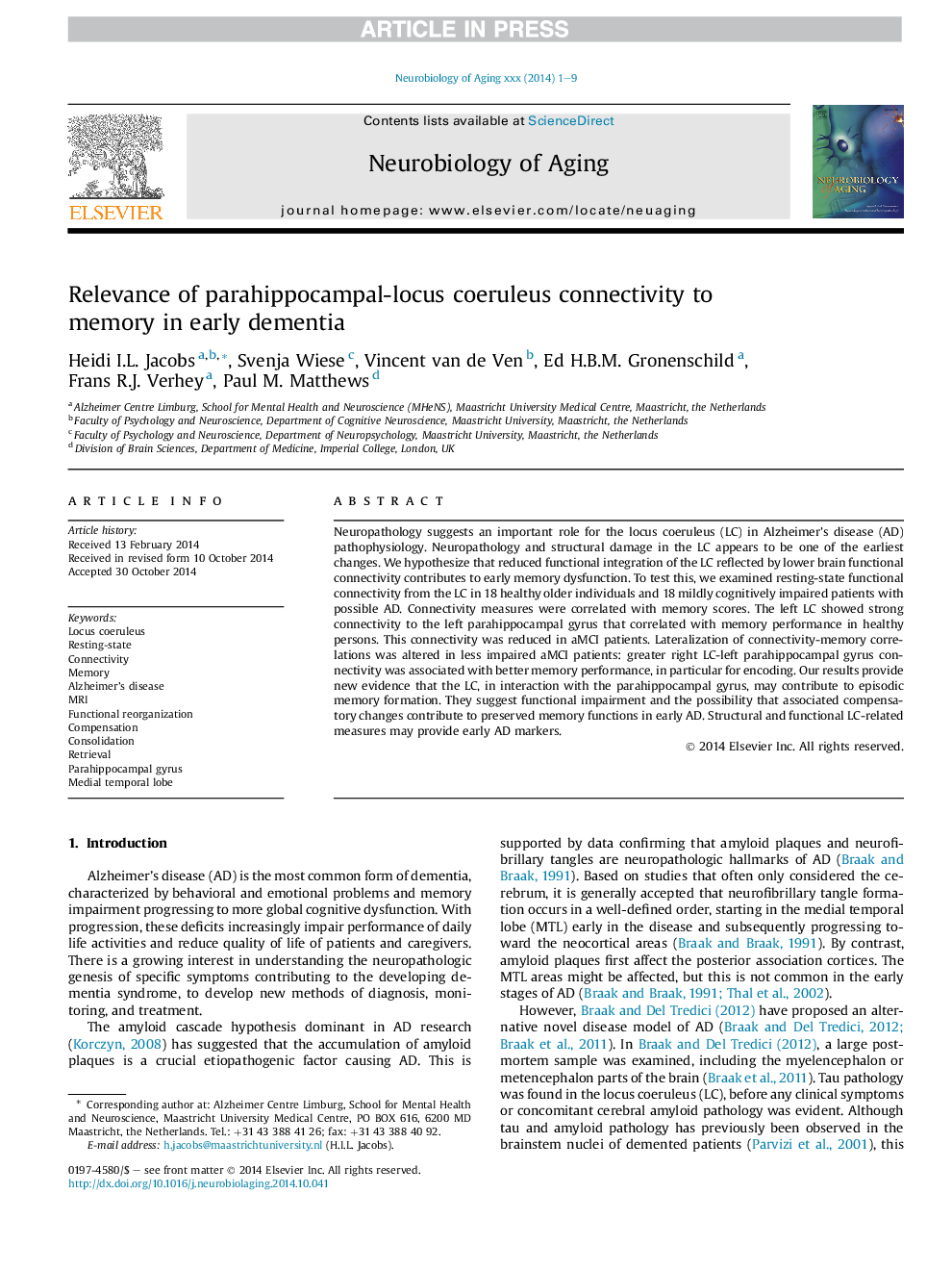| Article ID | Journal | Published Year | Pages | File Type |
|---|---|---|---|---|
| 6804692 | Neurobiology of Aging | 2015 | 9 Pages |
Abstract
Neuropathology suggests an important role for the locus coeruleus (LC) in Alzheimer's disease (AD) pathophysiology. Neuropathology and structural damage in the LC appears to be one of the earliest changes. We hypothesize that reduced functional integration of the LC reflected by lower brain functional connectivity contributes to early memory dysfunction. To test this, we examined resting-state functional connectivity from the LC in 18 healthy older individuals and 18 mildly cognitively impaired patients with possible AD. Connectivity measures were correlated with memory scores. The left LC showed strong connectivity to the left parahippocampal gyrus that correlated with memory performance in healthy persons. This connectivity was reduced in aMCI patients. Lateralization of connectivity-memory correlations was altered in less impaired aMCI patients: greater right LC-left parahippocampal gyrus connectivity was associated with better memory performance, in particular for encoding. Our results provide new evidence that the LC, in interaction with the parahippocampal gyrus, may contribute to episodic memory formation. They suggest functional impairment and the possibility that associated compensatory changes contribute to preserved memory functions in early AD. Structural and functional LC-related measures may provide early AD markers.
Keywords
Related Topics
Life Sciences
Biochemistry, Genetics and Molecular Biology
Ageing
Authors
Heidi I.L. Jacobs, Svenja Wiese, Vincent van de Ven, Ed H.B.M. Gronenschild, Frans R.J. Verhey, Paul M. Matthews,
